curated by Simone Bardoni | reviews by Virginia Marcolini and Anna Vullo
Here at Concorto Film Festival we have always been interested in exploring and divulging lesser-known films, and throughout the years we have dedicated geographical focuses to dozens of European and international countries. This year’s focus will be, once again, on South America. After Cuba, Argentina and Colombia, the territorial focus of the 22nd edition of Concorto will be dedicated to Brazil. Over the past few years we have witnessed a great increase in the production of remarkable Brazilian films, in visual research but also in the research of powerful content with a strong emotional charge. Brazilian movies have become some of the most interesting ones in the contemporary scene, both because of the unaffectedness of their visions dedicated to the present-day, and of their stylistic innovations – in the fiction area but also in animations and documentaries. A cinema that is social and intimate at the same time, that reflects the multi-faceted aspects of a complex country both in short and full-length films, highlighting the economic differences and the ethnic and political polarisations. Ranging from the everyday life drama and comedy, to crime and satire, the Focus Brazil of Concorto 2023 will deal with these visions during the week of the festival with a double screening.
The selected shorta
curated by Simone Bardoni
Escasso, Clara Anastácia, Gabriela Gaia Meirelles, 2022
Fantasma Neon, Leonardo Martinelli, 2021
A Terra Em Que Pisa, Fauston da Silva, 2016
O Orfao, Carolina Markowicz, 2018
São Paulo Open Wound, Elizabeth Rocha Salgado, 2021
Vaca Profana, René Guerra, 2017
SCARCE (ESCASSO) by Clara Anastácia e Gabriela Gaia Meirelles | as seen by Anna Vullo
The protagonist of the mockumentary by the two Brazilian directors Clara Anastácia and Gabriela Gaia Meirelles is Roseane Silveira de Oliveira, who tells her story in what is supposed to be an interview. Rose asks the filming team not to mind the mess, because she has just started cleaning, but everyone is welcome in the house. However, it turns out that this is not her house. Growing up in the community (not “favela”, because when you say that word you don’t know what people think about) of Pavuna, Rose is an “animal professional”. One day, while she was walking with her dog, she noticed that the door of that house was open, went inside and then simply stayed. Her mission is now to look after it and wait for a safe return of its owner, who she knows through items and objects left in the house, to return safely. Through mock documentary language, the directors give voice to various social issues in Brazil, setting them in an individual and very human context. The truth that emerges from this apparent interview is that this house is the only possible shelter for Rose and that she is worried about the owner, because otherwise she does not understand what would drive a person to leave.
After all, as she says, there are those who take care of the elderly, those who take care of children. She takes care of a house. Maybe the real crime is having an empty house and people on the street.
NEON PHANTOM (FANTASMA NEON) by Leonardo Martinelli | as seen by Anna Vullo
After a list of the countless things that nowadays can be delivered at home, we meet João, the protagonist of Fantasma Neon. He tells us his story but, surprisingly, decides to tell it in song. “Between the streets and the traffic lights, between Brazil and the dust” there are the daily deliveries, and to this song and this rebellious dance others join in, each with their own story, their own forced choices, which often weigh more than the bag they have to carry all day. The complaint may just be about a barbecue sauce delivered instead of tartar sauce, but if they don’t want bad reviews, all they can do is smile (despite the fact that the smile is only drawn on the anti-Covid mask). Winner of the “Pardino d’oro” for best international short film at the Locarno Film Festival in 2021 and directed by Leonardo Martinelli, a director from Rio de Janeiro, Fantasma Neon aims to give a voice to one of the most ethically trampled job categories. Its musical character is also impressive. After all, João explains, they were told it would be like a musical, “work hard, so everything will be fine in the end’. But the real question is: good for whom?
THE ORPHAN (O ÒRFAO) by Carolina Markowicz | as seen by Anna Vullo
In a gray room, filled with a bunch of identical folders, Jonathas finds out that Paula and Raul are planning to adopt him. Jo’s immediate reaction is bewilderment, although Ms. Leila tries to reassure him by telling him that this time it is going to work. A number of flashbacks start showing his past experience with Daniela and Carlos. The couple was eager to have a child, until they realized that Jo would rather become a cheerleader and play with lipsticks than become a footballer and play with footballs: at that point, their affection for him starts lacking. Thus, the orphanage becomes Jo’s safe place – although he is constantly bullied for his effeminacy – mainly because of the presence of Vanessa, his only friend, who accepts him for who he is. With The Orphan, film director from São Paulo, Carolina Markowicz, examines the prejudices and the narrow-mindedness one can come across during the adoption process, a quite delicate matter where making someone feel welcome should be the priority. In this film based on a true story, Jo will have to give a chance to Paula and Raul. Will it be different this time?
SAO PAULO OPEN WOUNDS | as seen by Virginia Marcolini
In a political period where the Brazilian government encourages intolerance and violence towards dissident bodies, a group of underground artists from São Paulo reclaims these icons of violence and engulfs them with just as much ferocity. Here, the body turns into a means and a manifesto of fight, and finds its highest form of liberation in art. Sao Paulo open wounds, already displayed at The Clermont-Ferrand International Short Film Festival, is a documentary made up of multiple voices operating secretly, inside the cracks, at night. The spaces taken up by the bodies turn into places that are inhabited by “ravetalization” and clubbing, as opposed to the neoliberal revitalization of the suburbs. From these open wounds in the core of the urban pattern, that are yet marginal to it, resistance spaces are born.
VACA PROFANA (PROFANE COW) | as seen by Virginia Marcolini
Nadia is a transgender woman with a dream: becoming a mother. Ana Maria is a young girl who has recently given birth but decided not to keep the baby. These two women will manage to come to an agreement, amongst hesitations and second thoughts, and to become at peace with themselves.
In little over fifteen minutes, film director René Guerra manages to examine motherhood with a rough and biting sensitivity, by perceiving it more as an existing condition, rather than as a procreative function. Right when the court legally recognizes Nadia’s motherhood, she experiences childbirth firsthand, which determines a rebirth of both herself and her child.
Now, Nadia is finally a mother. She has always been one.

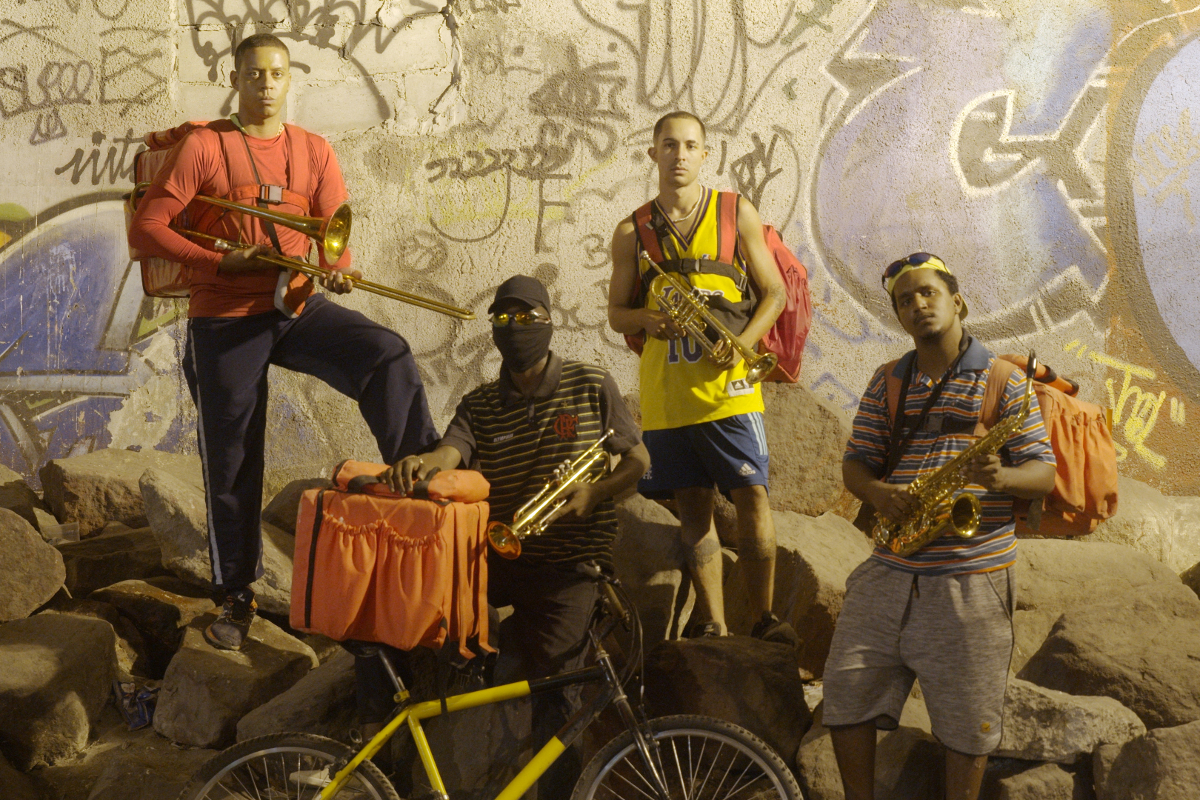

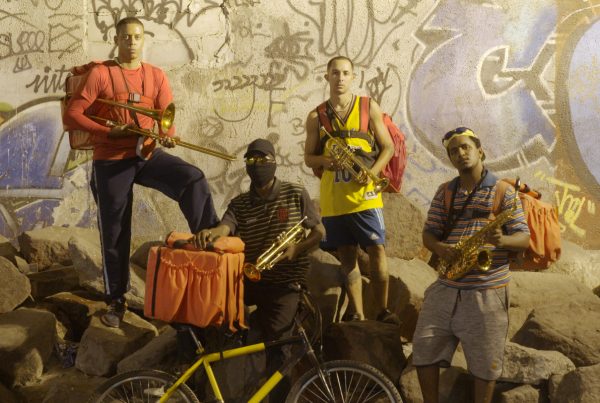
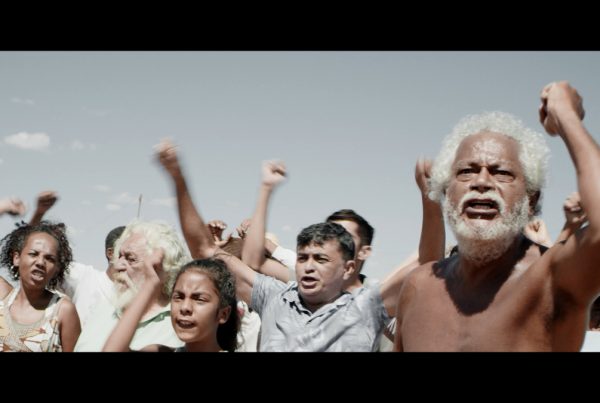
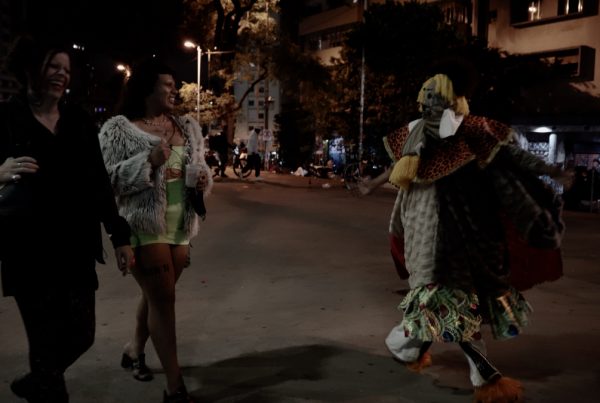
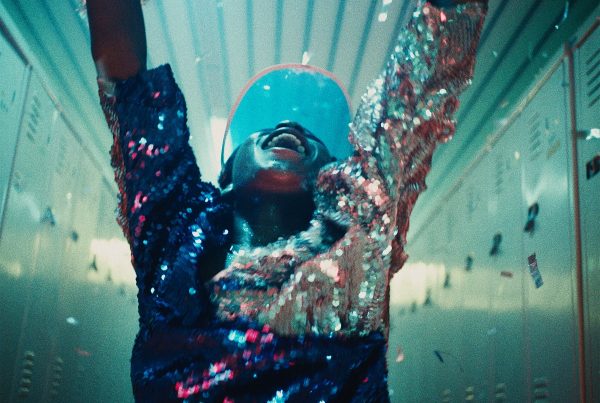
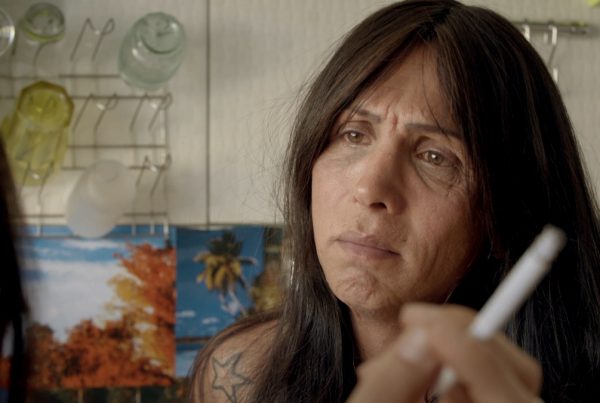






Commenti recenti